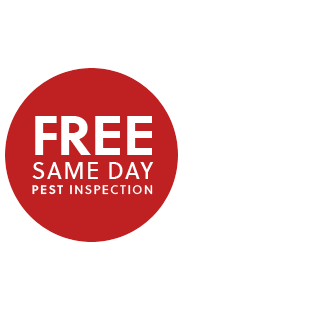Debunking termite myths, California style
When it comes to termites, there can be as many myths as there are facts. In fact, you could say this about many of the pests that invade homes.
Clark, your neighborly pest control, lawn care, and termite control expert, has heard many of those myths. That said, the termite experts at Clark Pest Control are armed with facts, as well as the latest technology and advanced treatment methods to mitigate these structure-damaging pests.
To help debunk the myths surrounding termites, we’ve asked Dennis Ah Chin, service manager for WDO in Clark’s Vacaville branch, to share some of his best myth busters.
Myth: My house is termite proof, because it’s stucco and sits on a slab.
Fact: Not true! Termites don’t eat concrete or stucco, but anything containing cellulose can be a target. Termites can eat through drywall, wallpaper, and wooden furniture. Also, many stucco homes have wooden frames that are still susceptible to damage. Termites can find cracks in the stucco and concrete to access the wood in your home. I have seen termites eat 10 years of tax returns in a customer’s all-concrete basement. I hope the IRS doesn’t call for an audit!
Myth: My house was treated before, so it can’t get termites again.
Fact: Wrong! Many factors can have impact on how long a termite treatment works. Most treatments only come with a one-year guarantee, but environmental factors, the quality of work or material used all can all impact the effectiveness of your termite treatment. Also, you may have had a subterranean termite treatment, but that will not prevent a drywood termite infestation. It’s recommended that you have a professional termite inspection done every two to three years and maintain extended warranties. A homeowner who had a termite treatment done was surprised two years later when he found them coming out from behind a picture in his hallway! Good thing he bought the extended warranty.
Myth: Termites don’t live in this area.
The Fact: False, unless you live in Alaska. Termites live in every other state and love warmer weather. They are most active in the south, southeast, west, and southwest. Here in California, drywood and subterranean termites do the most damage and, in some cases, you will have both eating away at your home. If you say I’m safe because I live up north and it’s cold, well, you’re wrong. It’s estimated that in the Windy City of Chicago, one of every 16 buildings has a termite infestation. I guess not all termites like tanning on the beach.
You should ask about Clark Pest Control’s exclusive Termite Infestation Program (T.I.P.), which will cover your home from future infestations and damages. A full termite inspection must be performed to see if your home qualifies, and then, for a small monthly fee, you can avoid costly out-of-pocket treatment and repair expenses.
Are you concerned about swarming termites? Pest control has been deemed an essential service during the COVID-19 crisis by the state of California, so feel free to call or text California’s trusted pest management expert, Clark, at (800) WE-NEED-YOU (936-3339), or send an e-mail to clarkcares@clarkpest.com. We are ready to help solve your termite and pest issues.
Until next time, the pest management professionals at Clark Pest Control thank you for helping to keep unwanted pests out of your home. Stay safe and be well.
Clark Pest Control Public Health Statement
CLARK CARES
The number-one priority at Clark Pest Control is protecting the world where our employees and customers live, work, and play. We are closely monitoring the current coronavirus (COVID-19) outbreak, and our top priority is keeping our employees and customers safe. Our organization has had a longstanding partnership with the Centers for Disease Control and Prevention (CDC) and has spawned multiple public health and educational initiatives involving pest-related health risks. In addition to following the guidance of the Centers for Disease Control and Prevention and the World Health Organization (WHO), we already have policies and procedures in place across our business to address issues that may arise during this outbreak and potential pandemic events.


